If you punish him for what he sees you practise yourself, he… will be apt to interpret it the peevishness and arbitrary imperiousness of a father, who, without any ground for it, would deny his son the liberty and pleasure he takes himself.
JOHN LOCKEThis is to think, that men are so foolish, that they take care to avoid what mischiefs may be done them by pole-cats, or foxes; but are content, nay, think it safety, to be devoured by lions.
More John Locke Quotes
-





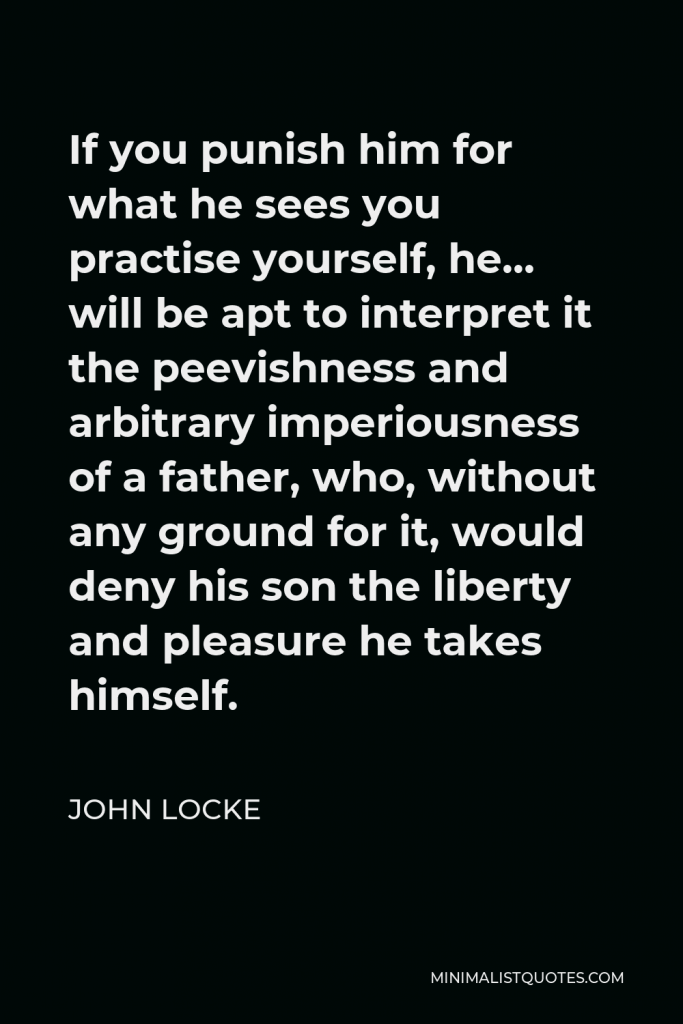

-





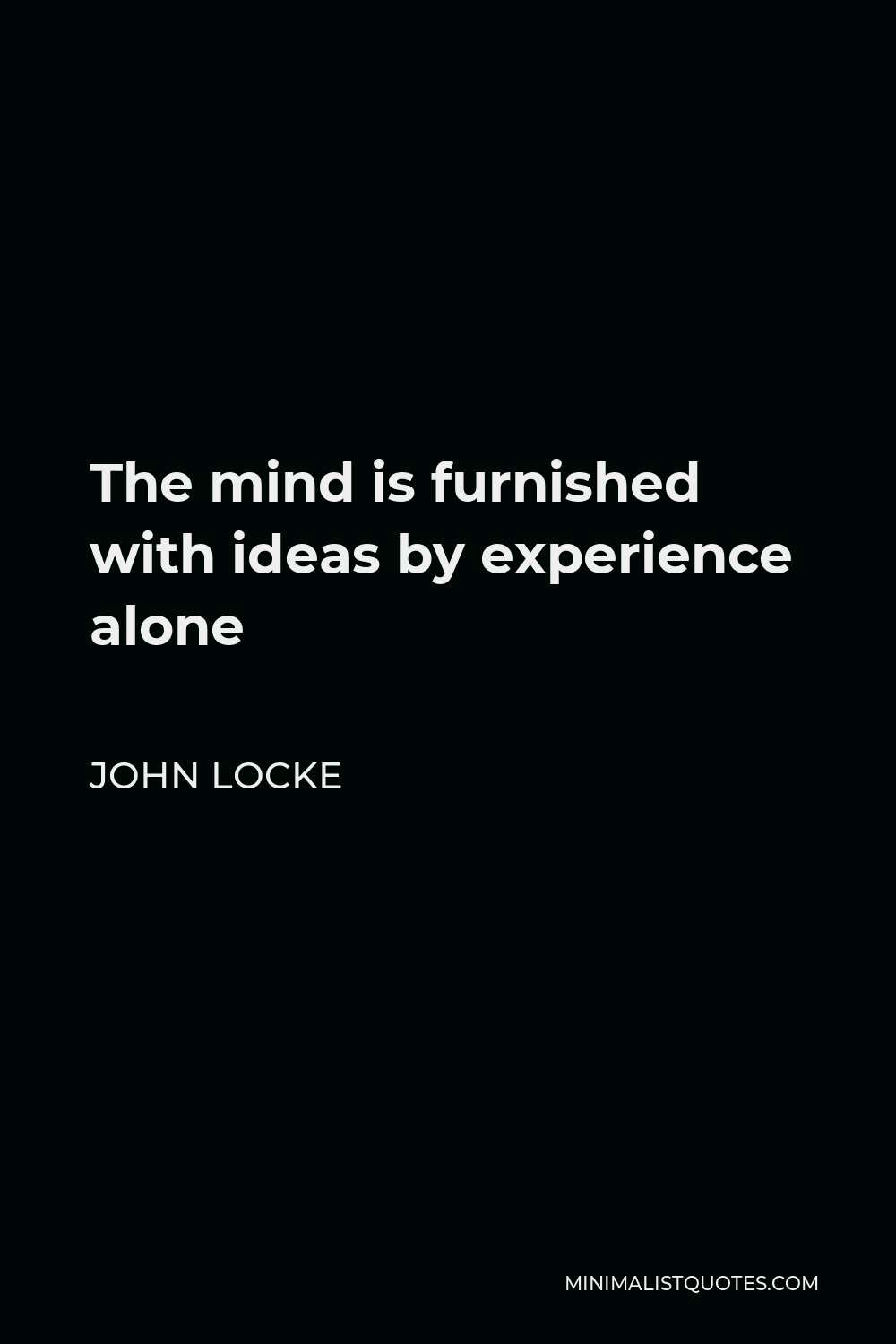
The mind is furnished with ideas by experience alone
JOHN LOCKE -





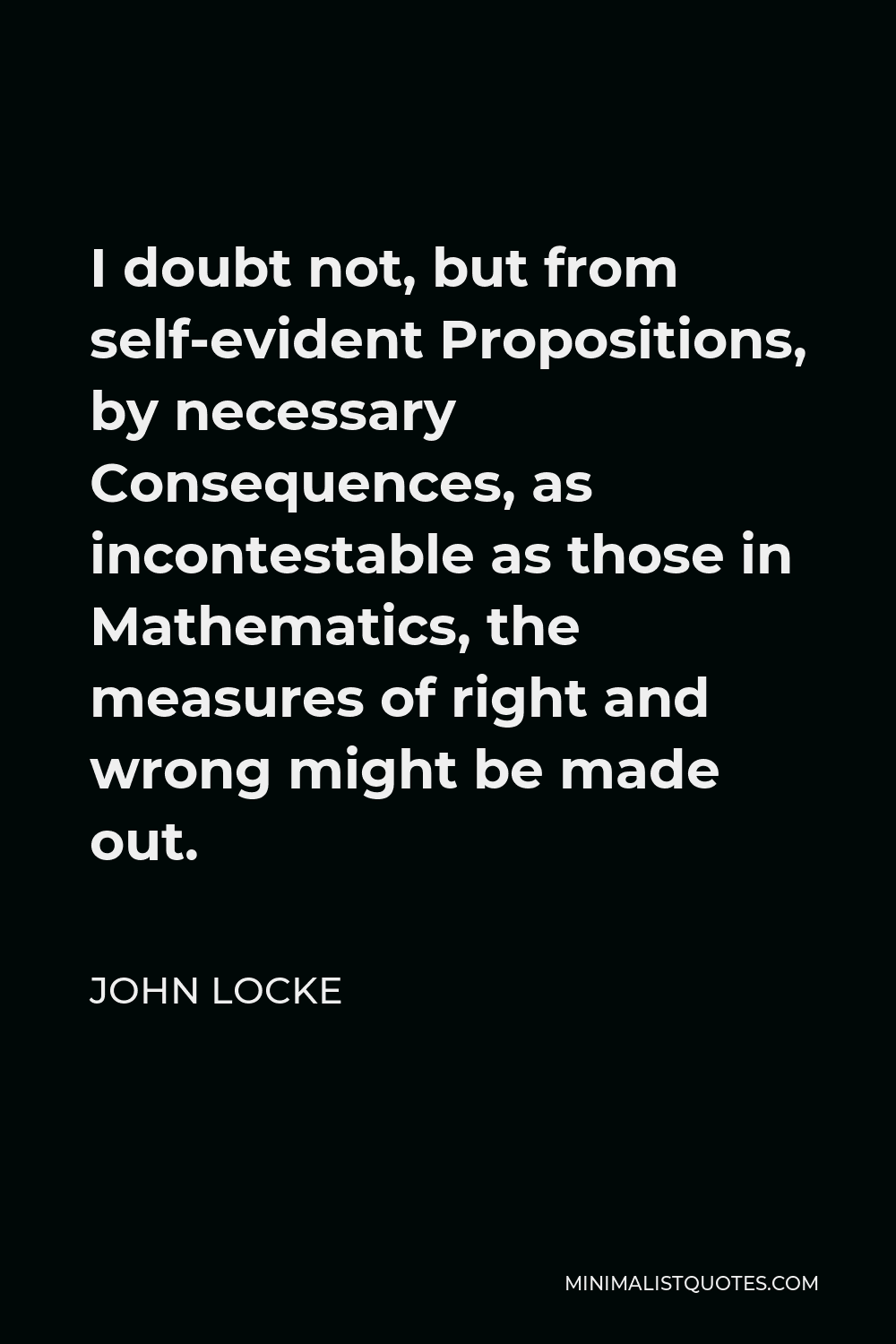
I doubt not, but from self-evident Propositions, by necessary Consequences, as incontestable as those in Mathematics, the measures of right and wrong might be made out.
JOHN LOCKE -







No man’s knowledge here can go beyond his experience.
JOHN LOCKE -





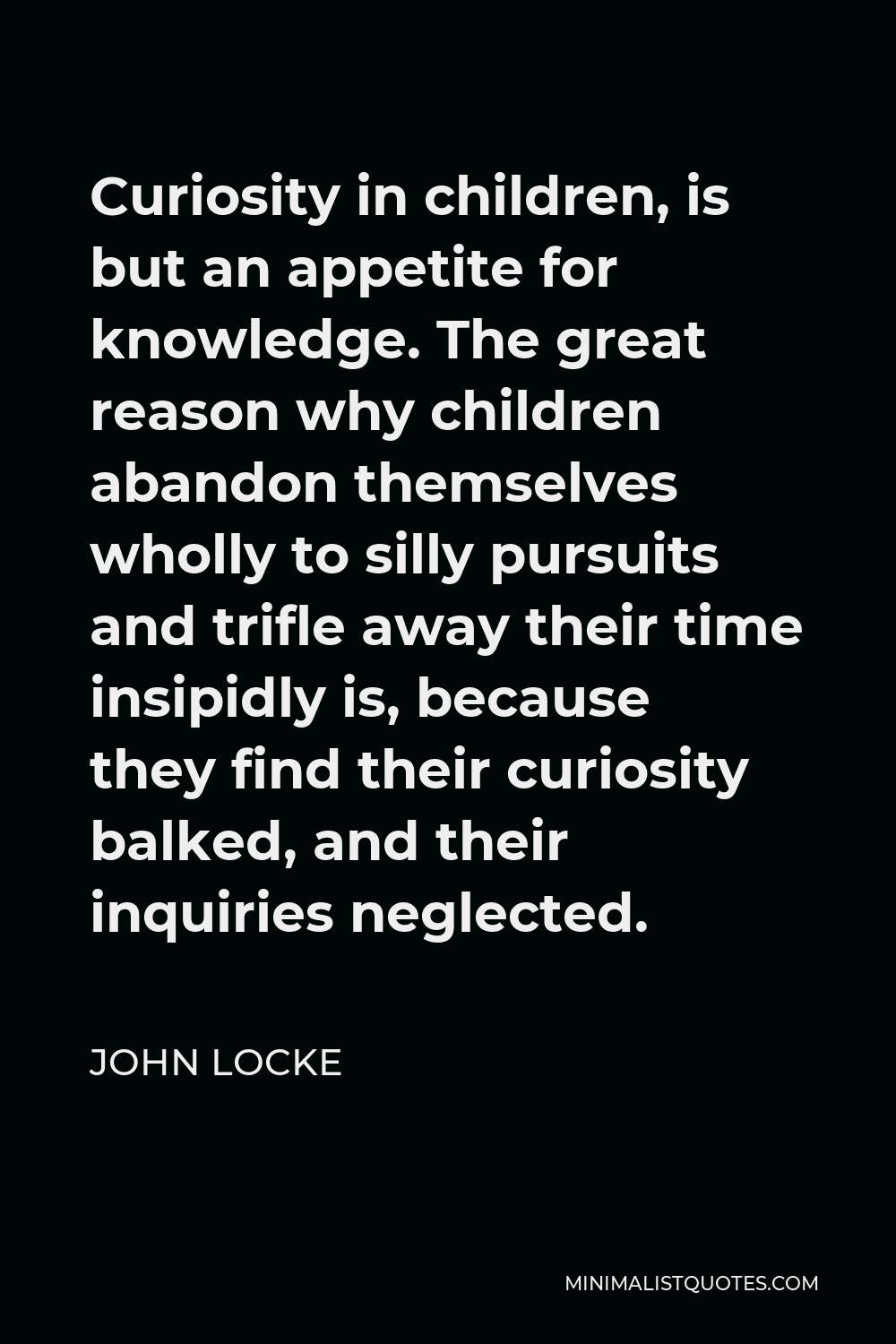
Curiosity in children is but an appetite for knowledge.
JOHN LOCKE -





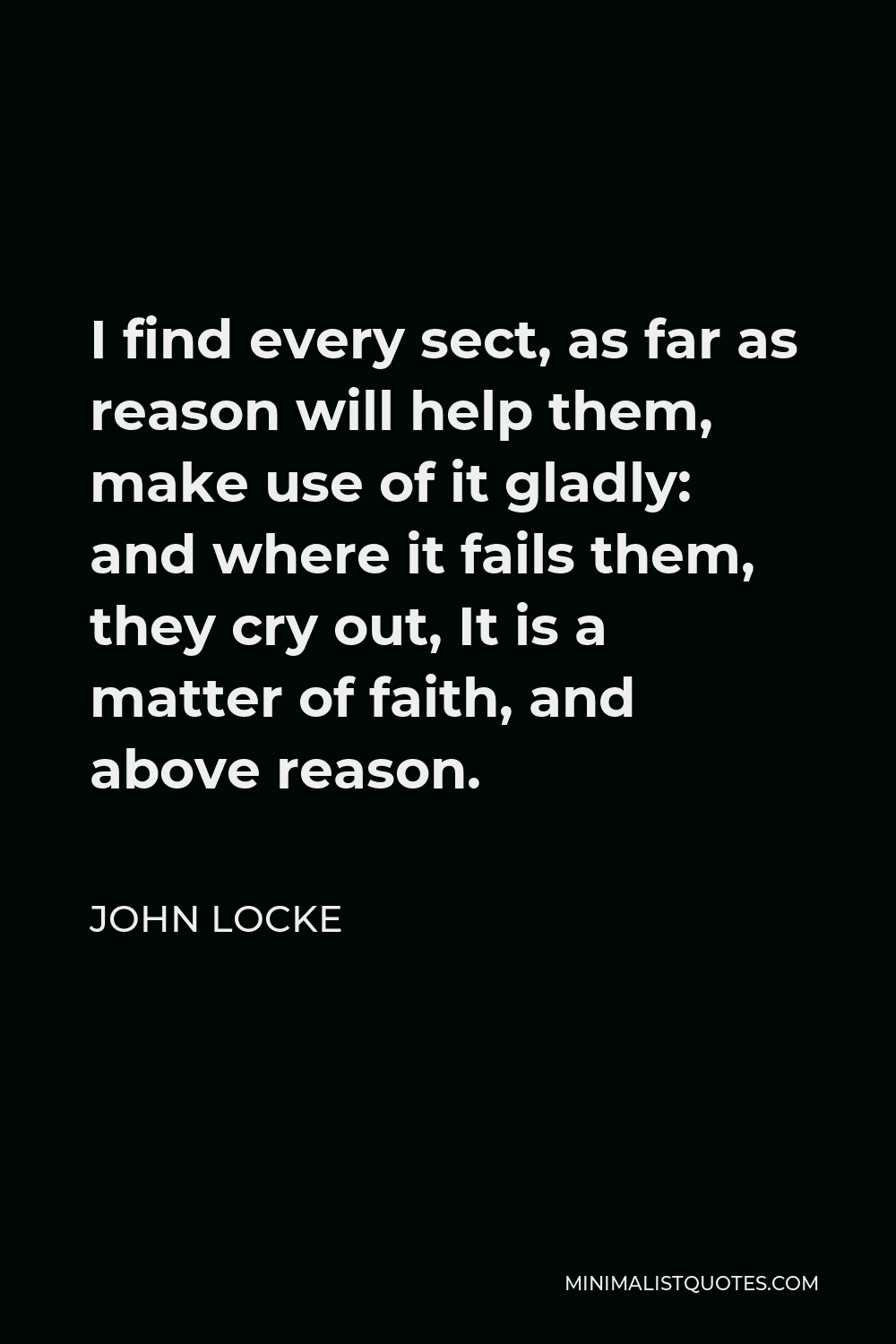
I find every sect, as far as reason will help them, make use of it gladly: and where it fails them, they cry out, It is a matter of faith, and above reason.
JOHN LOCKE -





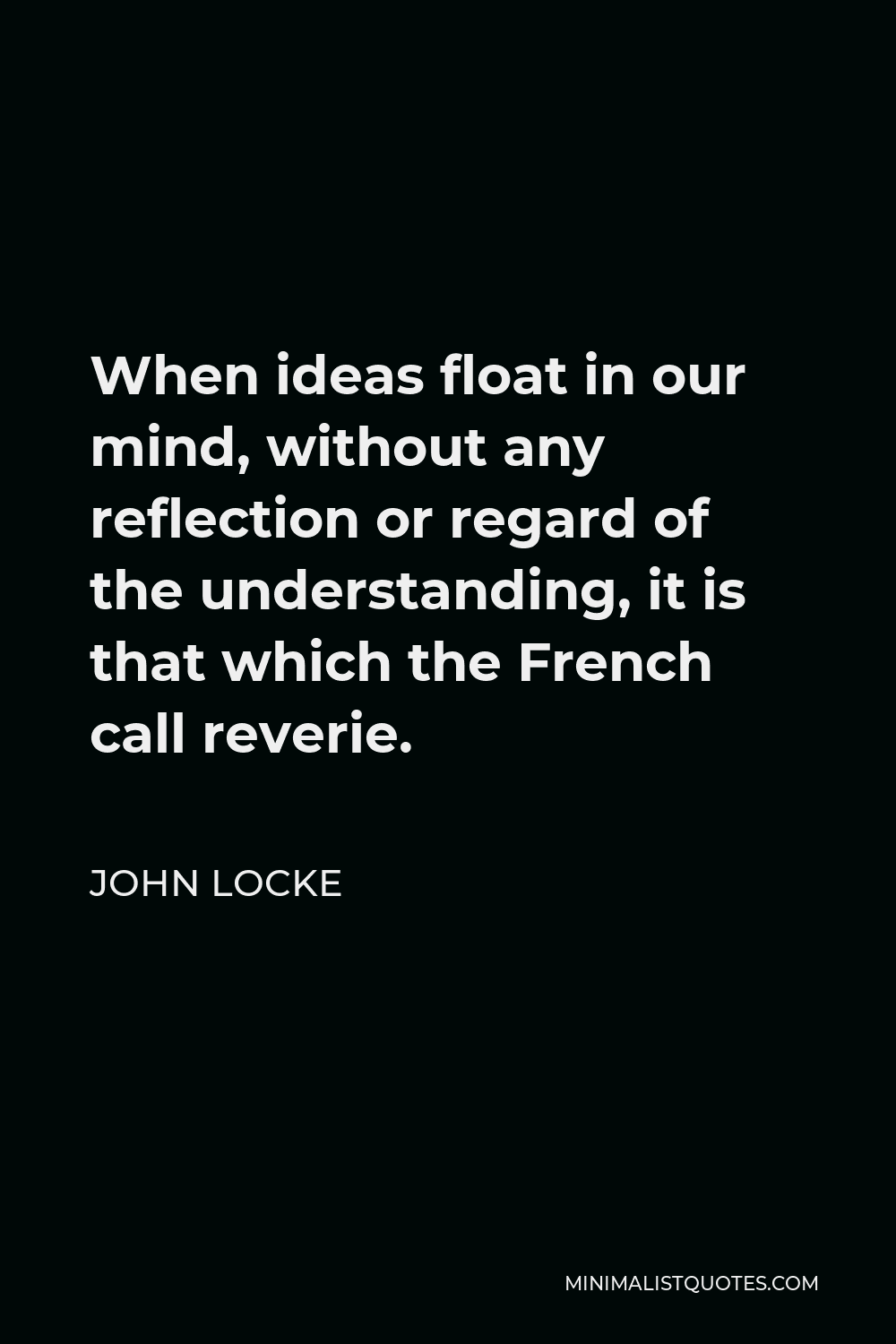
When ideas float in our mind, without any reflection or regard of the understanding, it is that which the French call reverie.
JOHN LOCKE -





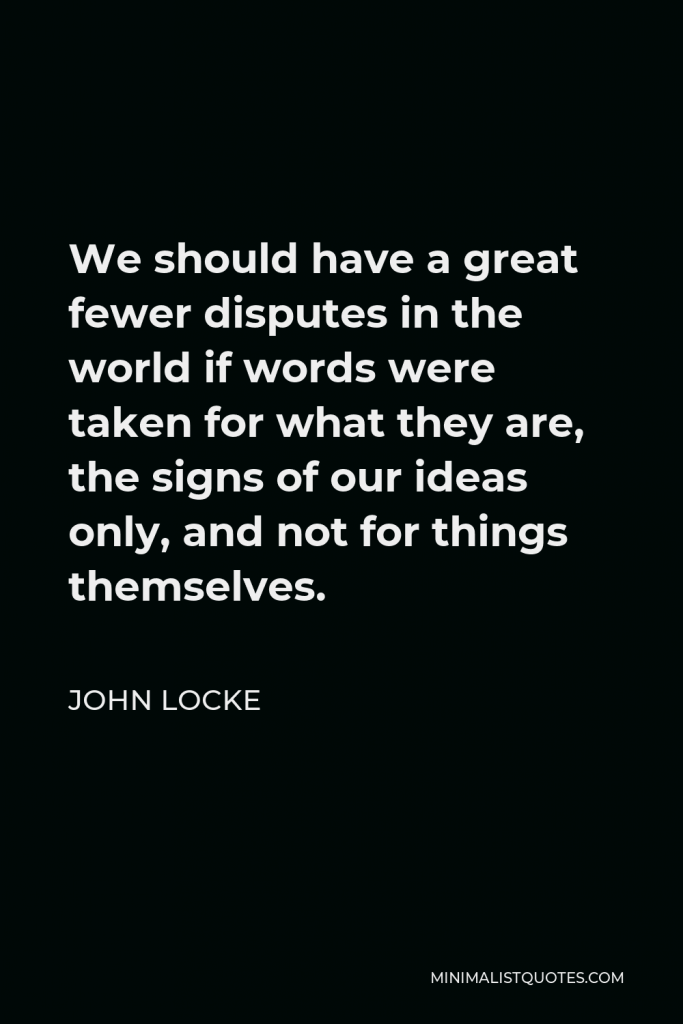

We should have a great fewer disputes in the world if words were taken for what they are, the signs of our ideas only, and not for things themselves.
JOHN LOCKE -





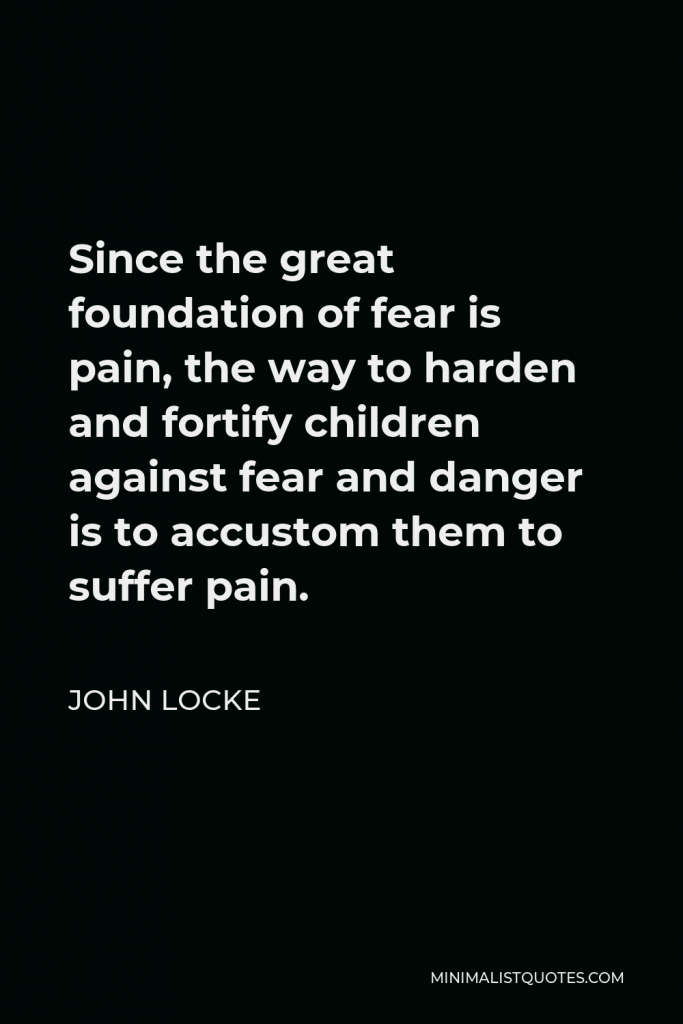

Since the great foundation of fear is pain, the way to harden and fortify children against fear and danger is to accustom them to suffer pain.
JOHN LOCKE -






Revolt is the right of the people
JOHN LOCKE -





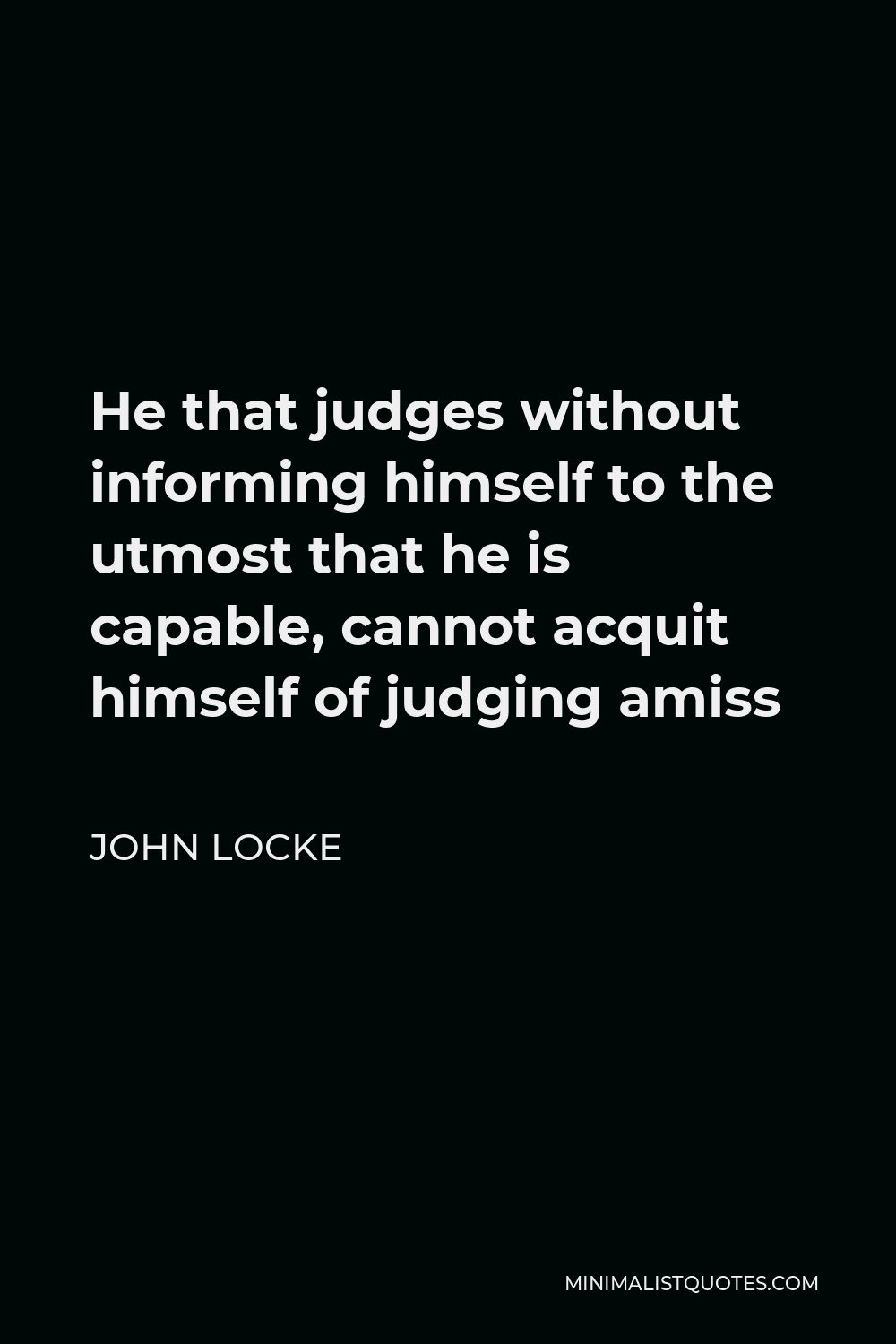
He that judges without informing himself to the utmost that he is capable, cannot acquit himself of judging amiss
JOHN LOCKE -





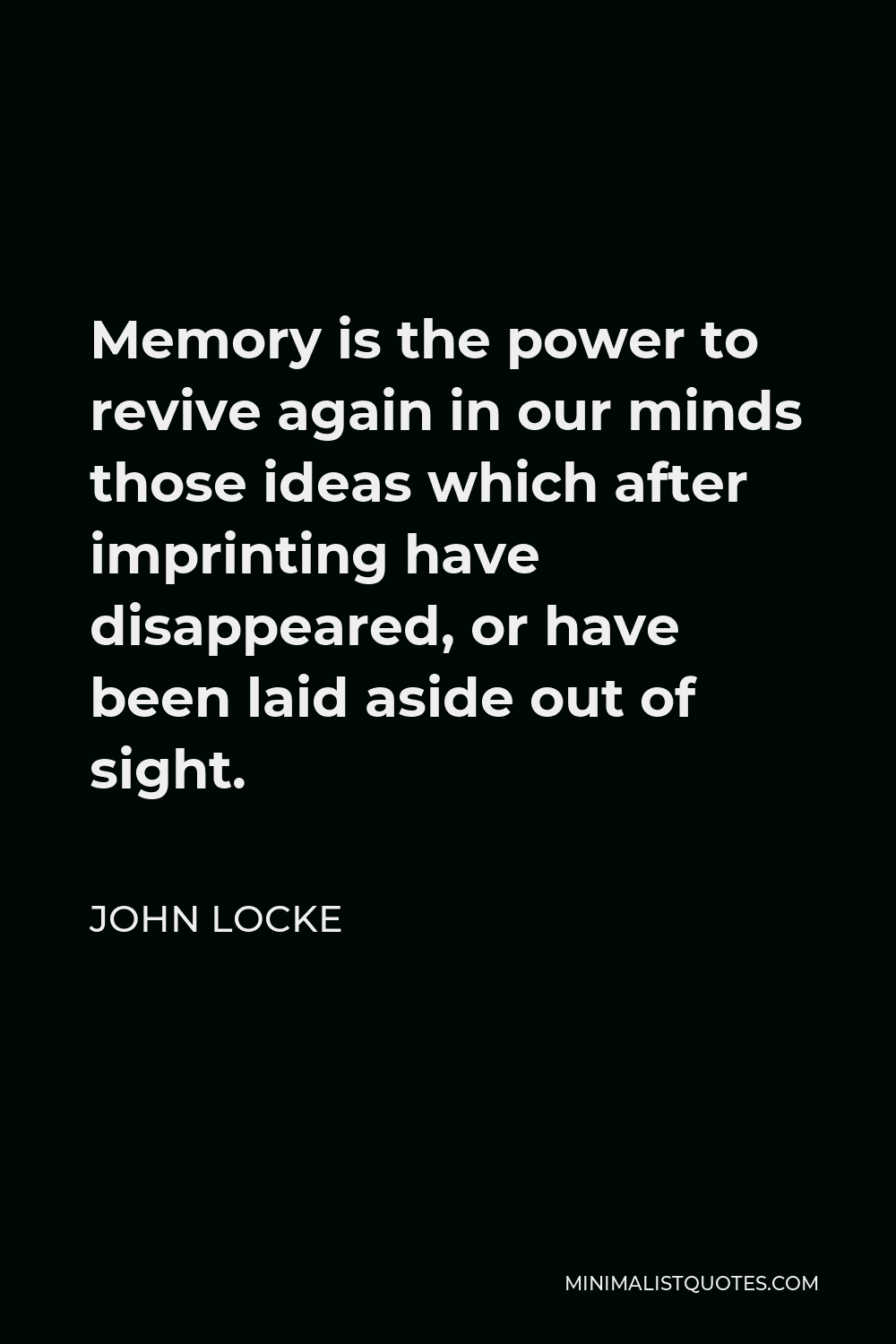
Memory is the power to revive again in our minds those ideas which after imprinting have disappeared, or have been laid aside out of sight.
JOHN LOCKE -





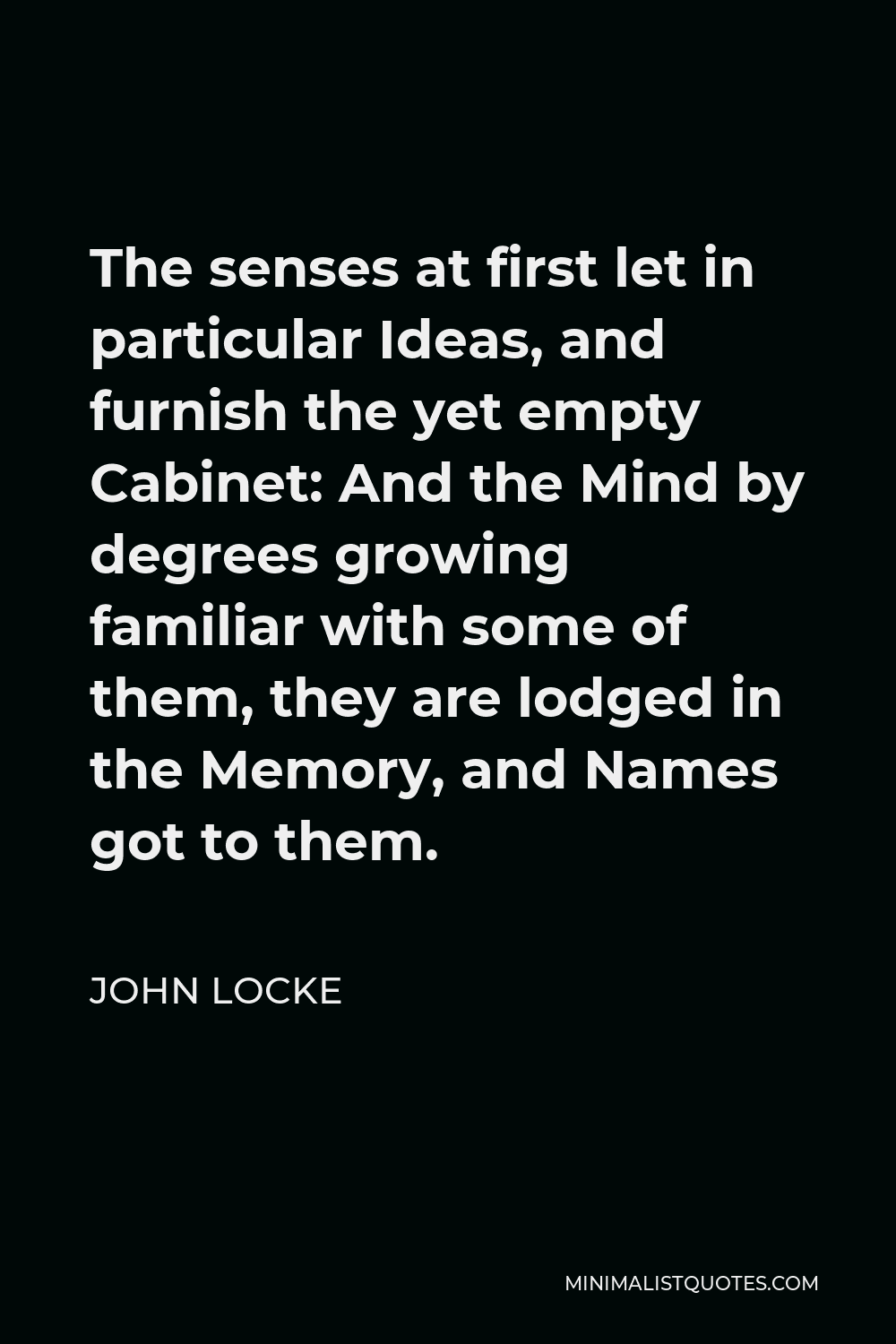
The senses at first let in particular Ideas, and furnish the yet empty Cabinet: And the Mind by degrees growing familiar with some of them, they are lodged in the Memory, and Names got to them.
JOHN LOCKE -





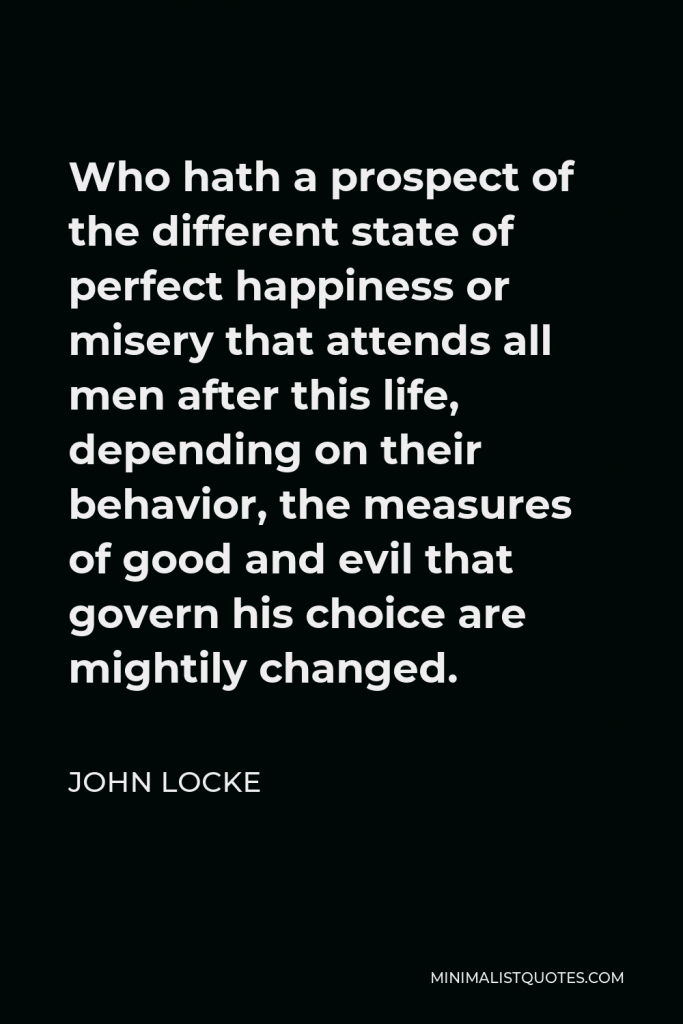

Who hath a prospect of the different state of perfect happiness or misery that attends all men after this life, depending on their behavior, the measures of good and evil that govern his choice are mightily changed.
JOHN LOCKE -





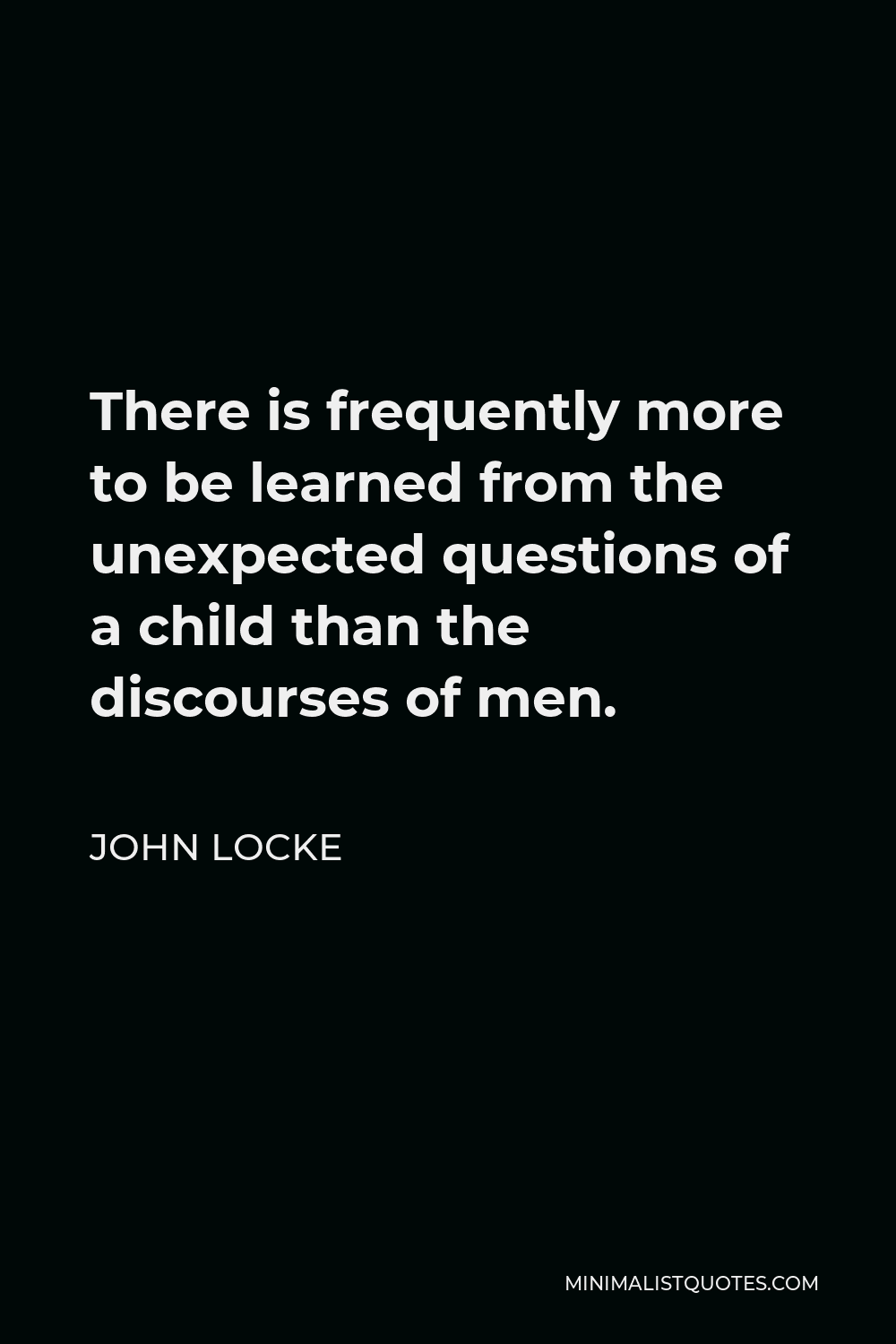
There is frequently more to be learned from the unexpected questions of a child than the discourses of men.
JOHN LOCKE -





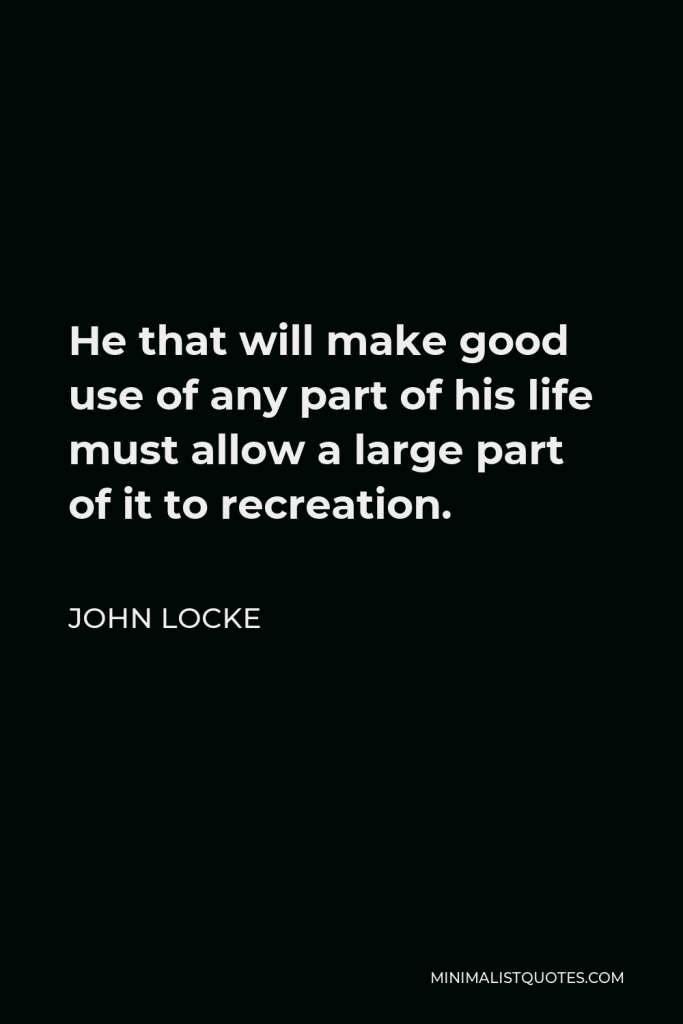

He that will make good use of any part of his life must allow a large part of it to recreation.
JOHN LOCKE







